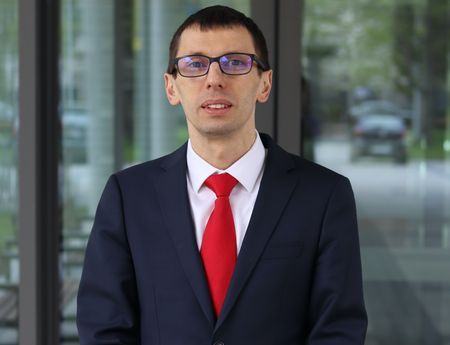
Prof. Wojciech Macyk from the JU Faculty of Chemistry has received a grant in the first edition of the SHENG programme funded by the Polish National Science Centre and the National Science Foundation of China. The main aim of Prof. Macyk’s team is to develop photocatalysts that will aid in efficient production of solar fuels through the process of single- and multi-electron reduction of carbon dioxide.
Due to rapid growth of industry and population, fossil fuels such as coal, oil, and natural gas have been all but exhausted, resulting in both energy crisis and environmental pollution. Using these energy sources causes damage to our planet’s water and air, and leads to immense amounts of greenhouse gases, particularly carbon dioxide, being emitted into our atmosphere. That is why it is of crucial importance to seek new types of fuels that are not as damaging to the environment, and employing photocatalytic CO2 reduction seems to be a promising clean way of producing them. It is exceptionally advantageous due to the fact that it makes use of solar energy.
‘Carbon dioxide is characterised by its high thermodynamic stability, so its photocatalytic reduction is a complex and very demanding process. Materials designed to be suitable to that chemical reaction should therefore have sufficient reduction capabilities. Currently, the most often used heterogenic photocalaysts are N-Type semiconductors, which are strong oxidants in their excided state. However, they are not very good reductors, except for semiconductors with large band gap whose photoactivity is limited to the range of high-energy ultraviolet. Conversely, P-Type semiconductors should offer more reduction potential than N-Type ones due to their structure. Consequently, it is among them that we will have to look for a photocatalyst suitable for carbon dioxide reduction’ Prof. Macyk explained, adding that he will be working on this case together with Prof. Jianguo Yu from the Wuhan University of Technology.
Applicants interested in the SHENG programme are able to receive funding for Polish-Chinese basic research in the area of life sciences, exact sciences, and selected social sciences. Funded projects will be realised both in Poland and in China, with one supervisor from each of the two countries.
SHENG is a programme created jointly by the Polish National Science Centre and the National Science Foundation in China. Applicants for the programme were assessed individually by the two organisations with respect to scientific impact, team qualifications, feasibility, and costs.





